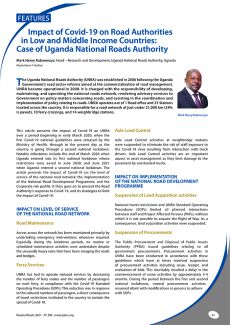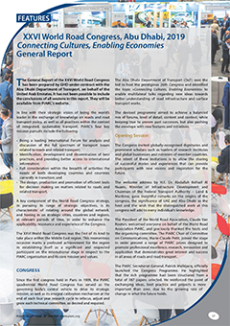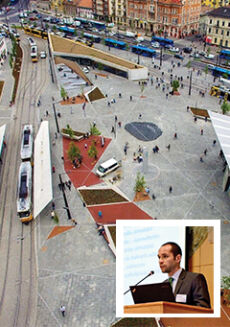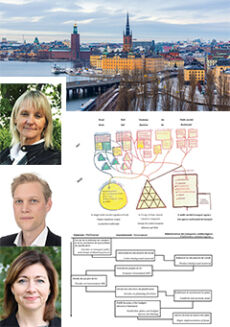Publications Routes/Roads Governance of road authorities
This page lists Routes/Roads articles of PIARC in the field of Governance of road authorities. These publications are classified chronologically.
-
Impact of Covid-19 on Road Authorities in Low and Middle Income Countries: Case of Uganda National Roads Authority

The Uganda National Roads Authority (UNRA) was established in 2006 following the Uganda Government’s road sector reforms aimed at the commercialisation of road management. UNRA became operational in 2008. It is charged with the responsibility of developing, maintaining, and operating the national roads network, rendering advisory services to Government on policy matters concerning roads, and assisting in the coordination and implementation of policy relating to roads. UNRA operates out of 1 Head [...]
-
XXVI World Road Congress – Abu Dhabi, October 2019 Connecting Cultures, Enabling Economies - General Report

The General Report of the XXVI World Road Congress has been prepared by GHD under contract with the Abu Dhabi Department of Transport, on behalf of the United Arab Emirates. It has not been possible to include the conclusions of all sessions in this report. They will be available from PIARC’s website.
-
An Integrated Transport Authority: the Centre for Budapest Transport, Hungary

The Centre for Budapest Transport (BKK) was established in 2010 as the new integrated transport-organizing authority of Hungary’s capital city, Budapest, within a new city management framework based on the model of Transport for London. BKK integrates the management of public transport, cycling, road infrastructure, parking, taxi services and transport development. Since its creation, BKK has started the preparation of several ambitious projects such as a public bike sharing scheme (Mol-BuBi), [...]
-
Multi-Modal Transport for New South Wales

In the Australian State of New South Wales (NSW), there has been a recent integration of previously distinct, mode-oriented transport agencies to create a multi-modal transport ‘cluster’, led by a single integrated transport authority, Transport for New South Wales (TfNSW). This shift towards modal integration follows a trend in Australia and elsewhere in the world towards larger, more complex ‘super-agency’ structures designed to deliver integrated, joined up transport planning and better [...]
-
Multi-Modal Planning and Delivery in Sweden

In recent years, the Swedish transport sector has undergone major organizational restructuring. The overall direction of change has been to streamline functions while at the same time establish a more multi-modal organizational structure. The reforms culminated with the formation of a multi-modal transport agency. Thus, several transport modes, which previously competed for similar resources, merged into a single organization.
1 / 31
- Previous
- Next